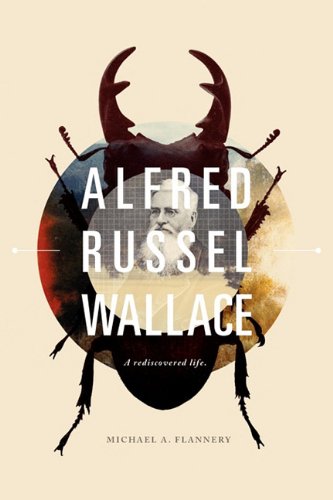 A friend writes to say, One of the most renowned biologists of the nineteenth century, Alfred Russel Wallace shares credit with Charles Darwin for developing the theory of evolution by natural selection. Yet one part of Wallace’s remarkable life and career has been completely ignored: His embrace of intelligent design. Darwin’s Heretic is a 21-minute documentary that explores Wallace’s fascinating intellectual journey and how it sheds light on current debates. The documentary features University of Alabama at Birmingham Professor Michael Flannery, author of the acclaimed biography, Alfred Russel Wallace: A Rediscovered Life:
A friend writes to say, One of the most renowned biologists of the nineteenth century, Alfred Russel Wallace shares credit with Charles Darwin for developing the theory of evolution by natural selection. Yet one part of Wallace’s remarkable life and career has been completely ignored: His embrace of intelligent design. Darwin’s Heretic is a 21-minute documentary that explores Wallace’s fascinating intellectual journey and how it sheds light on current debates. The documentary features University of Alabama at Birmingham Professor Michael Flannery, author of the acclaimed biography, Alfred Russel Wallace: A Rediscovered Life:
For years Alfred Russel Wallace was little more than an obscure adjunct to Charles Darwin’s theory of evolution. Remembered
only for prompting Darwin to write On the Origin of Species in 1859 by writing his own letter proposing a theory of natural selection, Wallace was rightly dubbed by one biographer “the forgotten naturalist.” In 1998 Sahotra Sarkar bemoaned Wallace’s “lapse into obscurity,” noting that “at least in the 19th century literature, the theory of evolution was usually referred to as ‘the Darwin and Wallace theory’. In the 20th century, the theory of evolution has become virtually synonymous with Darwinism or neo-Darwinism.” While the complaint still has a ring of truth, a decade of recent interest in Wallace has done much to bring him back from history’s crypt of forgotten figures. This shouldn’t suggest unanimity of opinion, however.
Some regard him as a heretic, others as merely a misguided scientist-turned-spiritualist, still others as a prescient figure anticipating the modern Gaia hypothesis. Perhaps Martin Fichman’s phrase hits closest and most persistently to the truth—“the elusive Victorian.” Can the real Wallace be found? If so, what might we learn in that rediscovery? [from publisher]
See also: On the centennial of the passing of Alfred Russel Wallace, controversy continues
Follow UD News at Twitter!